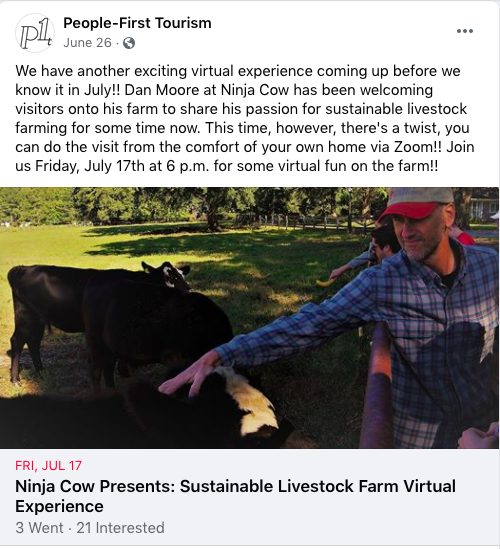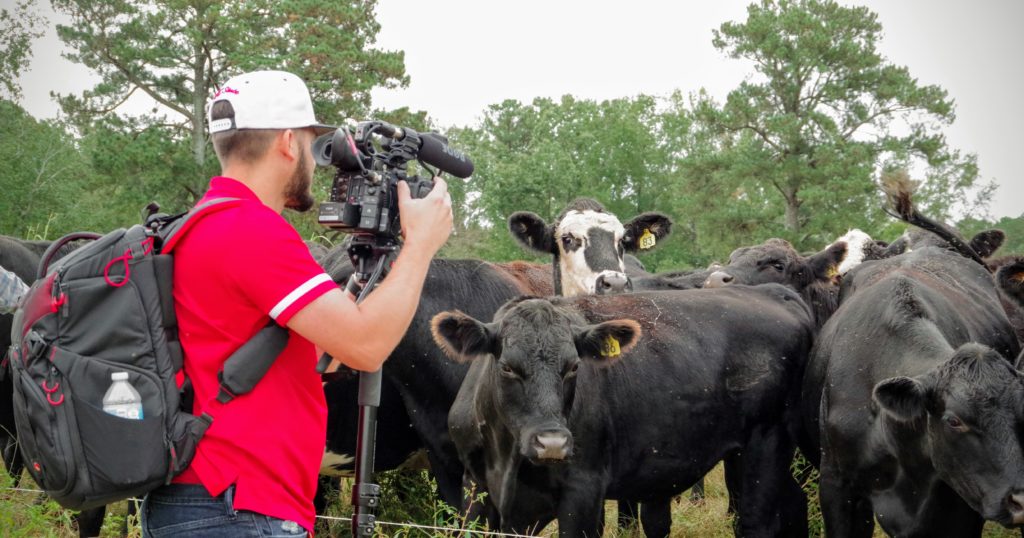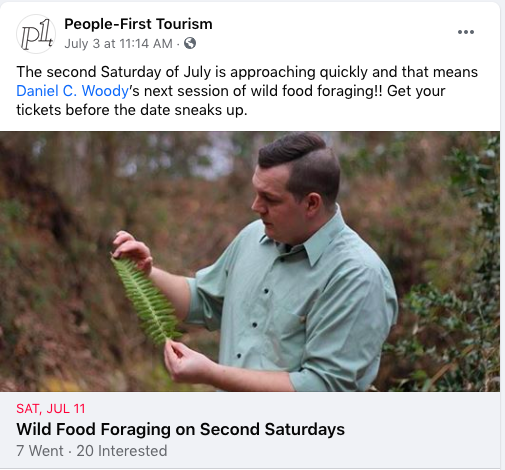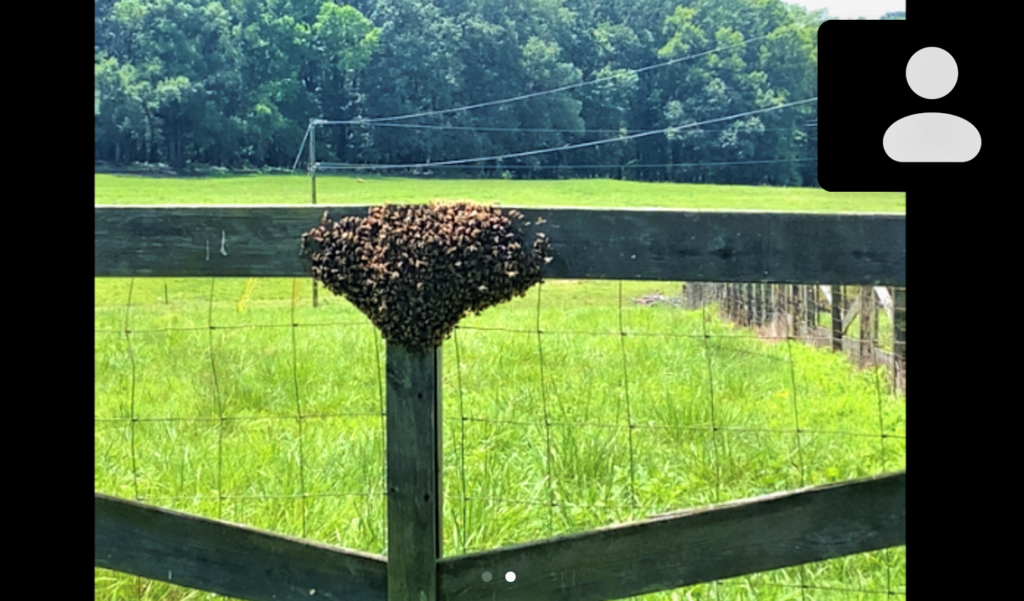Virtual Tours Connecting Prospective Visitors With Local Guides
go.ncsu.edu/readext?725910
en Español / em Português
El inglés es el idioma de control de esta página. En la medida en que haya algún conflicto entre la traducción al inglés y la traducción, el inglés prevalece.
Al hacer clic en el enlace de traducción se activa un servicio de traducción gratuito para convertir la página al español. Al igual que con cualquier traducción por Internet, la conversión no es sensible al contexto y puede que no traduzca el texto en su significado original. NC State Extension no garantiza la exactitud del texto traducido. Por favor, tenga en cuenta que algunas aplicaciones y/o servicios pueden no funcionar como se espera cuando se traducen.
Português
Inglês é o idioma de controle desta página. Na medida que haja algum conflito entre o texto original em Inglês e a tradução, o Inglês prevalece.
Ao clicar no link de tradução, um serviço gratuito de tradução será ativado para converter a página para o Português. Como em qualquer tradução pela internet, a conversão não é sensivel ao contexto e pode não ocorrer a tradução para o significado orginal. O serviço de Extensão da Carolina do Norte (NC State Extension) não garante a exatidão do texto traduzido. Por favor, observe que algumas funções ou serviços podem não funcionar como esperado após a tradução.
English
English is the controlling language of this page. To the extent there is any conflict between the English text and the translation, English controls.
Clicking on the translation link activates a free translation service to convert the page to Spanish. As with any Internet translation, the conversion is not context-sensitive and may not translate the text to its original meaning. NC State Extension does not guarantee the accuracy of the translated text. Please note that some applications and/or services may not function as expected when translated.
Collapse ▲Aligning with their mission to create connections between visitors and hosts, People-First Tourism (P1t) has been exploring ways for destinations to remain engaged with aspiring visitors and for microentrepreneurs to continue earning income from tourism. Virtual tours are taking the stage and P1t is creatively and enthusiastically embracing it.

A screenshot of a P1t Virtual Tour social media advertisement for the Ninja Cow Farm. Through social media, individuals can ask questions about the tour, register, and share the event with friends.
As explained in a recent P1t Lab blog post, it is still unclear when it will be safe to travel again. The result of the dramatic collapse in tourism has brought a crisis to tourism companies and to the destination organizations that depend on the tax revenues they generate. Tourism microentrepreneurs, already with vulnerable livelihoods, have seen their tourism income slashed, often putting them in dire straits. P1t has transformed this situation into an opportunity to leverage NC State’s strength in information technologies by creating live virtual tours.
Although virtual tourism has been actively discussed for several decades and tentatively implemented by some destinations, this approach is not typically used to connect visitors with locals. Often virtual tours have replaced the local people who traditionally serve as guides sharing their culture and stories about their important places.

Behind the scenes recording for a virtual tour at Ninja Cow Farms. P1t uses high-tech to connect visitors with genuine people in low-tech places.
In contrast, Dr. Duarte Morais and Dr. Gene Brothers, founders of P1t, have been exploring ways to leverage virtual tours to help visitors overcome constraints created by their lack of familiarity with the local people and culture in a destination. These constraints are exacerbated by large tourism industry players, especially in highly visited areas, who can steer people away from the places small local businesses can interact with visitors and earn income.
Brothers explains that “a major part of tourism is gastronomy, flavors, smells, sensory moments, and this is often what visitors remember most strongly. But virtual tours still allow people to have experiences with people and places.” Brothers, Morais, their colleagues, students and community partners are carefully examining the new context imposed by COVID-19 and the information technologies available to them to develop virtual tourism solutions and processes..
Following a participatory action research methodology, the P1t team has been very busy during the COVID-19 pandemic developing and marketing virtual tours with guides in the Raleigh, NC area. Since mid-March, seven live virtual tours have taken place including a farm tour, an urban foraging workshop, and a blacksmith demonstration.

Daniel Woody is featured in this P1t virtual Tour advertisement posted on social media. When you click the link the image it will take you to the registration page. The tours are mostly, if not entirely, live streamed so the audience can interact with the host.
P1t has been exploring the market appeal of these virtual experiences, selling tickets at different pricing thresholds and descriptions. The number of tickets sold has varied, but the tours have been generally well-attended. “We advertise the events, but we don’t know how many people will actually register,” explains Liu Henghau, a Fall semester P1t marketing and communications intern. P1t research shows that this level of income uncertainty keeps many aspiring microentrepreneurs from becoming invested in this activity. P1t addresses this by ensuring a minimum amount of revenue in each event as a way for the destination and the online retailer to equitably share risk with the microentrepreneur.
Unlike organized mass tourism experiences like formal guided visits to popular attractions, genuine encounters with local guides are special because each interaction is personal. Sam Hall, another fall intern, reported that during a recent farm tour the group “came across a huge swarm of bees! The farmer stopped to get a closeup. Everyone loved it and they were able to ask the farmer questions right away.” To make these tours possible, Sam and Liu have been working behind the scenes researching technology solutions, scouting cell phone reception levels, and rehearsing with the local guides.

A surprise bee swarm and nest during the virtual tour at Ninja Cow Farm Tour. Live streaming leaves room for exciting, impromptu moments like this!
But what will happen when people feel safe to physically travel to destinations again? Brothers explains, “people will use virtual tours in the future to have more targeted travel, getting a taste of a place before they commit to going there. We predict people won’t only be going to such hotspot places anymore which could really reduce overtourism at some destinations.”
Embracing emerging technologies requires careful consideration about equitable access. Morais notes that “for almost a decade, my colleagues and I have been leveraging frugal IT innovations to create tourism income opportunities for locals while also making their destinations more competitive.” As P1t becomes involved with virtual tours, the group will continue researching tour guides’ equipment needs and access.
If you find this news interesting, sign up for the P1t newsletter or follow their Facebook as they navigate these challenges while still creating new and interesting experiences with local tour guides. If you are interested in virtual tours, you can visit P1t’s Eventbrite page for upcoming virtual experiences in North Carolina.
So, where will you virtually travel to this Fall?


